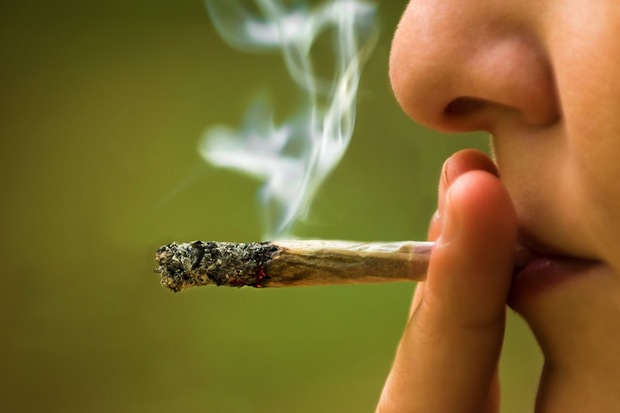Teens' Marijuana Use Continues to Rise

Get the world’s most fascinating discoveries delivered straight to your inbox.
You are now subscribed
Your newsletter sign-up was successful
Want to add more newsletters?

Delivered Daily
Daily Newsletter
Sign up for the latest discoveries, groundbreaking research and fascinating breakthroughs that impact you and the wider world direct to your inbox.

Once a week
Life's Little Mysteries
Feed your curiosity with an exclusive mystery every week, solved with science and delivered direct to your inbox before it's seen anywhere else.

Once a week
How It Works
Sign up to our free science & technology newsletter for your weekly fix of fascinating articles, quick quizzes, amazing images, and more

Delivered daily
Space.com Newsletter
Breaking space news, the latest updates on rocket launches, skywatching events and more!

Once a month
Watch This Space
Sign up to our monthly entertainment newsletter to keep up with all our coverage of the latest sci-fi and space movies, tv shows, games and books.

Once a week
Night Sky This Week
Discover this week's must-see night sky events, moon phases, and stunning astrophotos. Sign up for our skywatching newsletter and explore the universe with us!
Join the club
Get full access to premium articles, exclusive features and a growing list of member rewards.
An increasing number of high-school students say they don't think regular marijuana use is harmful, according to a new report from the National Institutes of Health.
Researchers who looked at drug use among American eighth, 10th and 12th graders during the past year found 60 percent of 12th graders said they don't think regular marijuana use is harmful, up from 55 percent in 2012.
About 6.5 percent of high-school seniors said they regularly smoked marijuana in 2013, compared with 6 percent in 2003 and 2.4 percent in 1993, according to the report, which was sponsored by the National Institute on Drug Abuse and included information from about 42,000 students from 389 schools across the United States.
"It is important to remember that over the past two decades, levels of THC — the main psychoactive ingredient in marijuana — have gone up a great deal, from 3.75 percent in 1995 to an average of 15 percent in today's marijuana cigarettes," Dr. Nora Volkow, director of the National Institute on Drug Abuse, told reporters today.
Daily marijuana use today can have stronger effects on a developing teen brain than it did 10 or 20 years ago, Volkow said. [10 Facts Every Parent Should Know About Their Teen's Brain]
Although a matter of debate, many studies have suggested that marijuana use during the teen years, when the brain is still developing, can have lasting effects on cognitive functions, including learning and memory, by acting on receptors that control the normal development of the brain.
Studies also have shown that the earlier people start using marijuana, the more likely they are to become addicted to other drugs.
Get the world’s most fascinating discoveries delivered straight to your inbox.
However, the new report also revealed some good news, Volkow said. Cigarette smoking continues to decline among high-school students, and for the first time, the percentage of students who said they smoked during the past month is less than 10 percent. That percentage was 16.7 percent 10 years ago and 24.7 percent in 1993.
In the new report, about 8.5 percent of 12th graders, 4.5 percent of 10th graders and 1.8 percent of eighth graders said they smoked cigarettes daily.
The use of synthetic marijuana, called K2 or spice, dropped to 8 percent among high-school seniors, from 11.3 percent last year. The use of a group of synthetic substances commonly known as bath salts is 1 percent or less in all three grades.
Meanwhile, the use of alcohol among teens is still declining; however, at a slower pace compared to tobacco use, Volkow said. About 40 percent of high-school seniors reported using alcohol in the past month, down from 53 percent in 1997.
Similarly, the researchers found declines in abuse of most other drugs, including the pain reliever Vicodin and Adderall, a stimulant used to treat attention-deficit/hyperactivity disorder.
The results showed that teens living in states that allow medical marijuana perceive less risk associated with the drug compared with teens elsewhere. The data also showed that marijuana prescription is a venue for teens to obtain the drug, the researchers said. About 35 percent of marijuana-using 12th graders living in states allowing medical marijuana said they obtain the drug through someone else's medical marijuana prescription.
The report provided rates of occasional marijuana use. Nearly 23 percent of high-school seniors said they smoked marijuana in the month prior to when the survey was taken, and slightly more than 36 percent said they smoked it during the past year.
The increases in marijuana use over the past few years are "disappointing" and a "serious setback" in the efforts to raise a healthy generation of young people, said Gil Kerlikowske, director of the Office of National Drug Control Policy.
"More kids are now smoking marijuana than smoke cigarettes," Kerlikowske said.
Email Bahar Gholipour. Follow us @LiveScience, Facebook & Google+. Original article on LiveScience.

 Live Science Plus
Live Science Plus





